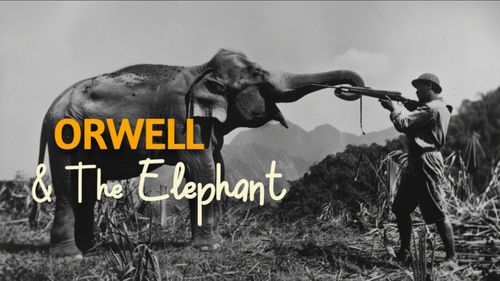Orwell's Elephant: A Searing Indictment of Imperialism's Brutal Hypocrisy
Mar 14, 2024 · 2 mins read
0
Share

In his iconic essay "Shooting an Elephant" (1936), George Orwell vividly captures the paradox at the heart of British imperialism through an unforgettable encounter with an enraged elephant...
Save
Share
The elephant, once a majestic beast revered in its homeland, is now a pitiful victim - its 'freedom' cruelly confined to satisfy colonial greed and racism.
Save
Share
Orwell's unsettling depiction forces us to confront colonialism's dehumanizing essence - the systematic subjugation of entire peoples to serve elite interests.
Save
Share
In pulling the trigger, the narrator realizes he has become the very embodiment of the oppressive system he loathes, an unwitting cog in its brutal machinery.
Save
Share
Orwell juxtaposes the elephant's noble power with its helpless captivity, a chilling metaphor for how imperialism strips dignity from even the most formidable cultures.
Save
Share
The elephant's agonizing death throes mirror the violent death rattle of the British Empire itself, succumbing to its own moral bankruptcy and logical contradictions.
Save
Share
Orwell's searing prose implicates us all, revealing how the veneer of 'civilization' is a flimsy mask obscuring humanity's capacity for senseless cruelty.
Save
Share
By centering a powerless victim, Orwell flips the colonial narrative, forcing the oppressor to confront the grim reality of their subjugation through another's anguished eyes.
Save
Share
The essay's visceral imagery sears into the reader's psyche, an eternal reminder that all empires - no matter how 'enlightened' - are rooted in subjugation and hypocrisy.
Save
Share
Orwell's haunting parable transcends its era, a timeless exhortation against the insidious evil of dehumanizing ideologies cloaked in lofty rhetoric of 'progress' and 'order'.
Save
Share
0




